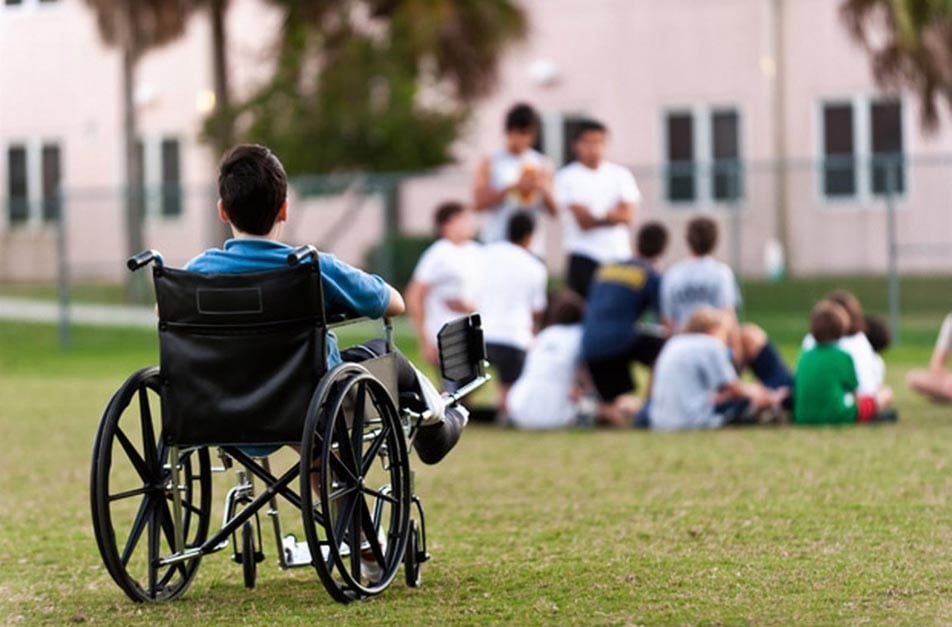
As the world marks the day of persons with disabilities, it is important to build a more inclusive and equitable world for them

"How can he work?" he asked in astonishment. "A completely-visually-impaired person, you say, is serving as a government officer with his simultaneous enrollment in PhD at the Quaid-i-Azam University; I simply don’t believe this," continued my friend. "It can be possible provided you ensure a level playing field," I answered. Under discussion was a visually-impaired person, Iftikhar Hussain Butt who did his master and MPhil from QAU, Islamabad and is now enrolled as a PhD student.
December 3 is the United Nations International Day of Persons with Disabilities (IDPD). It is celebrated every year ever since its commencement in 1992. Though abstract and vague, the UN’s definition of disability is all-encompassing: "…a condition or function to be significantly impaired relative to the usual standard of an individual of their group." Impairment of all kinds, sensory, visual, cognitive and intellectual and a number of chronic diseases fall under the rubric of disability. Statistics are disturbing.
According to the UN, one billion people, including more than 100 million disabled children, suffer from some kind of disability. Persons with disabilities are "the world largest minority" as one in every seven persons is disabled around the globe. No less than 80 per cent of the disabled population lives in the developing world. Similarly, 50 per cent of disabled people cannot afford healthcare. Worse, children with disabilities are four times more liable to violence than their non-disabled counterparts.
The UN’s this year theme on International Day of Persons with Disabilities is "Achieving 17 Goals for the Future We Want." The purpose of this theme is how to build what the UN calls as "a more inclusive and equitable world for persons with disabilities." The theme is inspired by the UN’s adoption of 17 Sustainable Development Goals (SDGs), a successor to Millennium Development Goals (MDGs) whose achievement period concluded in 2015. Disability is referenced in five goals of SDGs.
Why should we care?
Society thrives on inclusion; so does economy. Besides, it is the demand of justice. A couple of hurdles prevent the inclusion of PDs (persons with disabilities) as participating members of the society in Pakistan. At the societal level, disability is stigmatised. Not surprisingly then, discriminatory and demeaning words such as deaf, blind, mad and lame are a few among so many others used to call names to people with disabilities.
At the policy level, there is probably no such policy at work which targets the wellbeing of 12600000 citizens with disabilities. The net result is twofold. The number of uneducated citizenry must be rising. Lack of education translates into unemployment with attendant woes for teeming millions. Not a shock that they cannot afford healthcare.
An uneducated and unemployed lot of disabled people are a burden both on the fledgling economy and the society as a whole. Society based on exclusion is an unjust society.
How should we care?
We have had enough with equality; equity is the answer. Equality is meting out the same treatment to all people without considering their differences. Equity takes differences into account. It does not treat all the same way.
For example, it does not hand a pencil to both a normal student and a visually-impaired student to answer questions on a paper, which is the demand of equality. In such a situation, equity may demand the provision of a person who will write what the visually-impaired student utters -- an opportunity that the visually-sound person does not need. This way, equity provides a level playing field in terms of providing equal chances of success for every person.
Equity should be enshrined in law both in terms of provision of education and job opportunities. Obviously, a law has almost no meaning without its implementation in letter and spirit. Similarly, society should accept disability as a normal value. Disability is not an aberration; it is the rule! Public needs awareness for sure. Media is as useful a tool as education system is.
Nongovernmental organisations can be a helping hand for the government. An example is Pakistan Foundation Fighting Blindness (PFFB). When I asked Iftikhar Hussain how his journey of success came about, his answer was the extended help provided by PFFB under the dynamic leadership of late Saima Ammar, the former CEO of the organisation and founder of Audio World. "Under her leadership, Pakistan Foundation Fighting Blindness (PFFB) recorded the textbooks’ course of all the education boards and affiliated universities of the country in the form of audio cassettes," Iftikhar told me. "It is only because of her that these audio cassettes are available to the blind students at very nominal price," he maintained. Iftikhar Hussain rightly believes that Saima Ammar, a light for thousands of visually-impaired people, deserves recognition with a civil award posthumously.
Iftikhar’s story is a classic example of how we can transform the seven per cent disabled population into a productive lot of the society. There are a few people, like Saima Ammar, who can help us realise our goal no matter how disadvantaged they themselves may be. They need encouragement, however. "You can never doubt the ability of a few citizens to change the destiny of a whole nation," said Saima Ammar. And she did it herself!